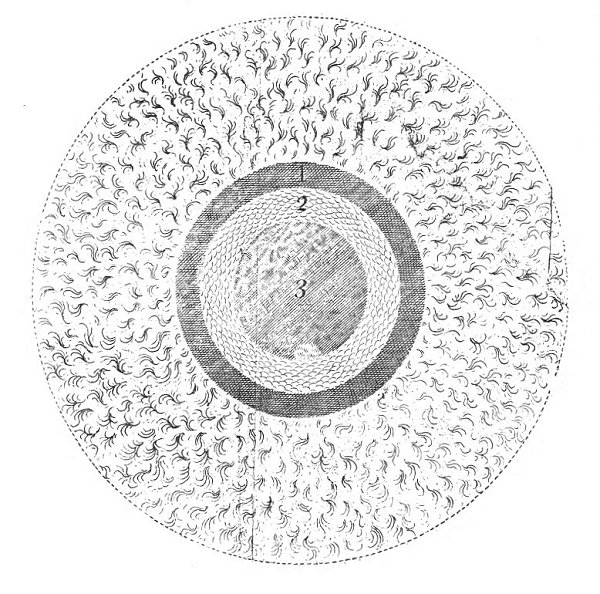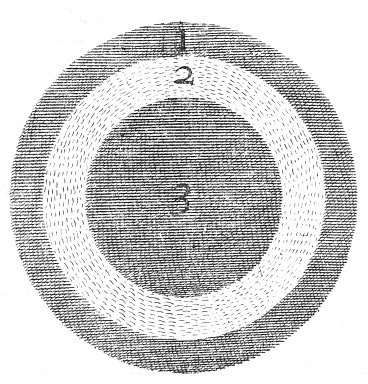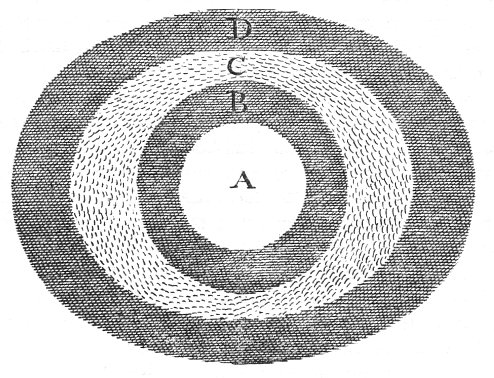Book II: Chapter I
THE SACRED THEORY OF THE EARTH
by Thomas Burnet
THE THEORY OF THE EARTH
Book 2
Concerning the PRIMAL EARTH, AND PARADISE.
CHAPTER I
The Introduction and Contents of the Second Book. The general state of the Primal Earth, and ofParadise.
WE have already seen a World begin and perish; An Earth raised from the rudiments of a Chaos, and dissolved and destroyed in an Universal Deluge. We have given also an imperfect description of that Primal Earth, so far as was necessary to show the causes and manner of its dissolution. But we must not content our selves with this; Seeing that Earth was the first Theater upon which mortals appeared and acted, and continued so for above Sixteen hundred Years; and that with Scenes, as both Reason and History tell us, very extraordinary and very different from these of our present Earth, tis reasonable we should endeavour to make a more full discovery and description of it; Especially seeing Paradisewas there; that seat of pleasure which our first Parents lost, and which all their posterity have much ado to find again.
In the First Book we so far described This new-found World, as to shew it very different in form and fabrick from the present Earth; there was no Sea there, no Mountains, nor Rocks, nor broken Caves, twas all one continued and regular mass, smooth, simple and compleat, as the first works of Nature use to be, But to know thus much only, doth rather excite our curiosity than satisfie it; what were the other properties of this World? how were the Heavens, how the Elements? what accommodation for humane life? why was it more proper to be the seat of Paradisethan the present Earth? Unless we know these things, you will say, it will seem but an aery Ideato us; and tis certain that the more properties and particularities that we know concerning any thing, the more real it appears to be.
As it was our chief design therefore in the precedent Book, to give an account of the Universal Deluge, by way of a just Theory; so we propose to our selves chiefly in this Book, from the same Theory to give a just account of Paradise; and in performing of this, we shall be led into a more full examination and display of that first Earth, and of its qualities. And if we be so happy, as by the conduct of the same principles and the same method, to give as fair an account, and as intelligible of the state of Paradisein that Original Earth, as we have done of the Deluge by the dissolution of it, and of the form of this Earth which succeeded, one must be very morose or melancholy to imagine that the grounds we go upon, all this while, are wholly false or fictitious. A foundation which will bear the weight of two Worlds without sinking, must surely stand upon a firm Rock. And I am apt to promise my self that this Theory of the Earth will find acceptance and credit, more or less, with all but those, that think it a sufficient answer to all arguments, to say it is a Novelty.
But to proceed in our disquisition concerning Paradise, we may note, in the first place, two opinions to be avoided, being both extreams; one that placeth Paradisein the extra-mundane Regions, or in the Air, or in the Moon; and the other that makes it so inconsiderable, as to be confined to a little spot of ground in Mesopotamia, or some other Country of Asia, the Earth being now as it was then. This offends as much in the defect, as the other in the excess. For it is not any single Region of the Earth that can be Paradisiacal, unless all Nature conspire and a certain Order of things proper and peculiar for that state. Nor is it of less importance to find out this peculiar Order of things, than to find out the particular feat of Paradise, but rather pre-requisite to it: We will endeavour therefore to discover and determine both, so far as a Theory can go, beginning with that which is more general.
Tis certain there were some qualities and conditions of Paradisethat were not meerly Topical, but common to all the rest of the Earth at that time; and these we must consider in the first place, examine what they were, and upon what they depended. History, both Sacred and Profane, must tell us what they were, and our Theory must show us upon what causes they depended. I had once, I confess, proposed to my self another method, independent upon History or Effects; I thought to have continued the description of the Primitive or Ante-diluvian Earth from the contemplation of its causes only, and then left it to the judgment of others to determine, whether that was not the Earth where the Golden Age was past, and where Paradisestood. For I had observed three conditions or characters of it, which I thought were sufficient to answer all that we knew concerning that first state of things, viz. The regularity of its surface; The situation or posture of its Body to the Sun; and the Figure of it:From these three general causes, I thought might be deduced all the chief differences of that Earth from the present, and particularly those that made it more capable of being Paradisiacal.
But upon second thoughts I judged it more useful and expedient to lay aside the Causes at present, and begin with the Effects, that we might have some sensible matter to work upon. Bare Idea's of things are lookt upon as Romantick till Effects be proposed, whereof they are to give an account; that makes us value the Causes when necessity puts us upon enquiry after them; and the reasons of things are very acceptable, when they ease the mind, anxious, and at a loss, how to understand Nature without their help. We will therefore, without more ado, premise those things that have been taken notice of as extraordinary and peculiar to the first Ages of the World, and to Paradise, and which neither do, nor can, obtain in the present Earth; whereof the first is a perpetual Spring or Equinox; The second, the Longevity of Animals; the and third Their production out of the Earth, and the great fertility of the soil in all other things.
These difficulties guard the way to Paradiselike the flaming Sword, and must be removed before we can enter; these are general Preliminaries which we must explain before we proceed to enquire after the particular place of this Garden of Pleasure. The Ancients have taken notice of all these in the first Ages of the World, or in their Golden Age, as they call it; and I do not doubt but what they ascribed to the Golden Age, was more remarkably true of Paradise; yet was not so peculiar to it, but that it did in a good measure extend to other parts of the Earth at that time. And tis manifest that their Golden Age was contemporary with our Paradise; for they make it begin immediately after the production and inhabitation of the Earth (which They, as well as Moses, raise from the Chaos) and to degenerate by degrees till the Deluge; when the World ended and begun again.
That this parallel may the better appear, we may observe, that as we say that the whole Earth was, in some sence, Paradisiacal in the first Ages of the World, and that there was besides, one Region or Portion of it that was peculiarly so, and bore the denomination of Paradise; So the Ancients besides their Golden Age, which was common to all the Earth, noted some parts of it that were more Golden, if I may so say, than the rest, and which did more particularly answer to Paradise; as their ElysianFields, Fortunate Islands, Gardens of Hesperides, Alcinous, &c. these had a double portion of pleasantness, and besides the advantages which they had common with the rest of the Earth at that time, had something proper and singular, which gave them a distinct consideration and character from the rest.
Having made this observation, let us proceed, and see what Antiquity saith concerning that first and Paradisiacal state of things, upon those three Heads forementioned; First that there was a perpetual Spring, and constant serenity of the Air; This is often repeated by the Ancient Poets, in their description of the Golden Age:
Non alios primcrescentis origine mundi
Illuxisse dies, aliumve habuisse tenorem,
Crediderim: Ver illud erat, Ver magnus agebat
Orbis, & hybernis parcebant flatibus Euri.
Such days the new-born Earth enjoyed of old,
And the calm Heavens in this same tenour rowled:
All the great World had then one constant Spring,
No cold East-winds, such as our Winters bring.
For I interpret this in the same sence with Ovid's Verses of the Golden Age:
Ver erat ernum: placidique tepentibus auris
Mulcebant Zephyri natos sine semine flores.
The Spring was constant, and soft Winds that blew
Raised, without Seed, Flowrs always sweet and new.
And then upon the expiration of the Golden Age, He says,
Jupiter antiqui contraxit tempora Veris, &c.
WhenJove begun to reign he changed the Year,
And for one Spring four Seasons made appear.
The Ancients supposed, that in the reign of Saturn, who was an Ante-diluvian God, as I may so call him, Time Howed with a more even motion, and there was no diversity of Seasons in the Year; but Jupiter, they say, first introduced that, when he came to manage affairs. This is exprest after their way, who seldom give any severe and Philosophical accounts of the changes of Nature. And as they supposed this perpetual Spring in the Golden Age, so they did also in their particular Elysiums; as I could show largely from their Authors, if it would not multiply Citations too much in this place.
The Christian Authors have no less celebrated the perpetual Spring and Serenity of the Heavens in Paradise; such expressions or descriptions you will find in Justin Martyr, St. Basil, Damascen, Isadore Hispalensis, and others; insomuch that Bellarmine, I remember, reflecting upon those Characters of Paradise, which many of the Fathers have given in these respects, saith, such things could not be, unless the Sun had then another course from what he hath now; or which is more easie, the Earth another situation. Which conjecture will hereafter appear to have been well-grounded. In the mean time, let us see the Christian Poetry upon this subject, as we have seen the Romanupon the other. Alcimus Avitushath thus described Paradisein his Notes upon Genesis:
Non hic alterni succedit temporis unquam
Bruma, nec tivi redeunt post frigora Soles;
H Ver assiduum Cli clementia servat.
Turbidus Auster abest, sempque sub aere sudo
Nubila diffugiunt, jugi cessura sereno.
Nec poscit Natura loci, quos non habet, imbres,
Sed contenta suo dotantur germina rore.
Perpetuviret omne solum, terrue benignbr> Blanda nitet facies: Stant semper collibus herb
Arboribque com &c.
No change of Seasons or excess was there,
No Winter chilled, nor Summer scorched the Air,
But, with a constant Spring, Nature was fresh and fair.
Rough Winds or Rains that Region never knew,
Watered with Rivers and the morning Dew;
The Heavns still clear, the Fields still green and gay,
No Clouds above, nor on the Earth decay;
Trees kept their leaves and verdure all the Year,
And Fruits were never out of Season there.
And as the Christian Authors, so likewise the Jewishhave spoken of Paradisein the same manner; they tell us also that the days there were always of the same length throughout the whole Year; and that made them fancy Paradiseto lie under the uinoctial; as we shall see in its due place. Tis true, we do not find these things mentioned expresly in the Sacred writings, but the effects that Howed from them are recorded there, and we may reasonably suppose Providence to have foreseen, that when those Effects came to be scaned and narrowly lookt into, they would lead us to a discovery of the Causes, and particularly of this great and general Cause, that perpetual uinoxand unity of seasons in the Year, till the Deluge. The Longity of the Ante-diluvians cannot be explained upon any other supposition, as we shall have occasion to show hereafter; and that you know is recorded carefully in Scripture: As also that there was no Rainbowbefore the Flood; which goes upon the same ground, that there was no variety of Seasons, nor any Rain: And this by many is thought to be understood by Moseshis words, Gen. 2. 5, 6. which he speaks of the first and Paradisiacal Earth. Lastly, seeing the Earth then brought forth the principles of life and all living Creatures (Man excepted) according to Moses, Gen. 1. 24. we must suppose that the state of the Heavens was such as favoured these Conceptions and Births, which could not possibly be brought to perfection, as the Seasons of the Year are at present. The first time that we have mention made in Scripture of Summer and Winter, and the differences of Seasons, is at the ending of the Deluge, Gen. 8. 22. Hence forward all the days of the Earth, Seed-time and Harvest, Heat and Cold, Summer and Winter, Day and Night shall not cease. Tis true these words are so lax, that they may be understood either of a new course of Nature then instituted, or of an old one restored; but seeing it doth appear from other arguments and considerations, that there was at that time a new course of Nature constituted, it is more reasonable to interpret the words in that sence; which, as it is agreeable to truth, according to Reason and Antiquity; so it renders that remark of Mosesof far greater importance, if it be understood as an indication of a new order then setled in Nature, which should continue thence forwards so long as the Earth endured. Nor do I at all wonder that such things should not be expresly and positively declared in Scripture, for natural mysteries in the Holy writings, as well as Prophetical, are many times, on set purpose, incompleatly delivered, so as to awaken and excite our thoughts rather than full resolve them: This being often more suitable to the designs of Providence in the government of the World. But thus much for this first common or general Character of the Golden Age, and of Paradise, a perpetual Serenity and perpetual uinox.
The second Character is the Longity of men; and, as is probable, of all other Animals in proportion. This, methinks, is as strange and surprising as the other; and I know no difference betwixt the Ante-diluvian World and the present, so apt to affect us, if we reflect upon it, as this wonderful disproportion in the Ages of Men; Our fore-fathers and their Posterity; They lived seven, eight, nine hundred Years and upwards, and tis a wonder now if a man live to one hundred. Our Oaks do not last so long as their Bodies did; Stone and Iron would scarce out-wear them. And this property of the first Ages, or their Inhabitants, how strange soever, is well attested, and beyond all exception, having the joynt consent of Sacred and Profane History. The Scripture sets down the precise Age of a series of Ante-diluvian Patriarchs, and by that measures the time from the beginning of the World to the Deluge; so as all Sacred Chronology stands upon that bottom. Yet I know some have thought this so improbable and incongruous a thing, that to save the credit of Mosesand the Sacred History, they interpret these years of Lunaryears or months; and so the Ages of these Patriarchs are reduced to much what the same measure with the common life of man at this time. It may be observed in this, as in many other instances, that for want of a Theory to make things credible and intelligible, men of wit and parts have often deprest the sence of Scripture; and that not out of any ill will to Scripture or Religion, but because they could not otherwise, upon the stock of their notions, give themselves a rational account of things recorded there. But I hope when we come to explain the causes of this longity, we shall show that it is altogether as strange a thing that men should have such short lives as they have now, as that they had such long lives in the first Ages of the World. In the mean time, there are a great many collateral reasons to assure us that Lunaryears cannot be here understood by Moses, for all Antiquity gives the same account of those first Ages of the World, and of the first men, that they were extreamly long-lived. We meet with it generally in the description of the Golden Age; and not only so, but in their Topical Paradisesalso they always supposed a great vivacity or longevity in those that enjoyed them. And Josephusspeaking upon this subject, saith, the Authors of all the learned Nations, Greeksor Barbarians, bear witness to Moses's doctrine in this particular. And in the MosaicalHistory it self, there are several circumstances and marks that discover plainly, that the years of the Patriarchs cannot be understood of Lunaryears; as we shall have occasion to show in another place. We proceed in the mean time to the third and last Character, The extraordinary fertility of the Soil, and the production of Animals out of the new-made Earth.
The first part of this Character is unquestionable; All Antiquity speaks of the plenty of the Golden Age, and of their Paradises, whether Christian or Heathen. The fruits of the Earth at first were spontaneous, and the ground without being torn and tormented, satisfied the wants or desires of man. When Nature was fresh and full, all things Howed from her more easily and more pure, like the first running of the Grape, or the Hony-comb; but now she must be prest and squeezed, and her productions tast more of the Earth and of bitterness. The Ancient Poets have often pleased themselves in making descriptions of this happy state, and in admiring the riches and liberality of Nature at that time, but we need not transcribe their Poetry here, seeing this point is not, I think, contested by any. The second part of this Character, concerning the spontaneous Origin of living Creatures out of that first Earth, is not so unquestionable; and as to Man, Mosesplainly implies that there was a particular action or ministery of Providence in the formation of his Body, but as to other Animals He seems to suppose that the Earth brought them forth as it did Herbs and Plants. (Gen. 1. 24 compared with the 11 Verse.) And the truth is, there is no such great difference betwixt Vegetable and Animals Egg, or betwixt the Seeds out of which Plants rise, and the Eggs out of which all Animals rise, but that we may conceive, the one as well as the other, in the first Earth: And as some warmth and influence from the Sun is required for the Vegetation of Seeds, so that influence or impregnation which is necessary to make animal Eggs fruitful, was imputed by the Ancients to the her, or to an active and pure Element which had the same effect upon our great Mother the Earth, as the irradiation of the Male hath upon the Females Eggs.
Tum Pater omnipotens fcundis imbribus her
Conjugis in gremium ldescendit.
In fruitful showrs of herJove did glide
Into the bosom of his joyful Bride.
Tis true, this opinion of the spontaneous Origin of Animals in the first Earth, hath lain under some Odium, because it was commonly reckoned to be Epicurus's opinion peculiarly; and he extended it not only to all brute Creatures, but to Mankind also, whom he supposed to grow out of the Earth in great numbers, in several Parts and Countries, like other Animals; which is a notion contrary to the Sacred writings; for they declare, that all Mankind, though diffused now through the several parts and Regions of the Earth, rise at first from one Head or single Man and Woman; which is a Conclusion of great importance, and that could not, I think, by the Light of Nature, have ever been discovered. And this makes the Epicureanopinion the more improbable, for why should two rise only, if they sprung from the Earth? or how could they rise in their full growth and perfection, as Adamand Evedid? But as for the opinion of Animals rising out of the Earth at first, that was not at all peculiar to Epicurus; The Stoickswere of the same mind, and the Pythagoreans, and the yptians, and, I think, all that supposed the Earth to rise from a Chaos. Neither do I know any harm in that opinion, if duly limited and stated; for what inconvenience is it, or what diminution of Providence, that there should be the principles of Life, as well as the principles of Vegetation, in the new Earth? And unless you suppose all the first Animals, as well as the first man, to have been made at one stroke, in their full growth and perfection, which we have neither reason nor authority sufficient to believe; if they were made young, little and weak, as they come now into the World, there seems to be no way for their production more proper, and decorous, than that they should spring from their great Mother the Earth. Lastly, considering the innumerable little Creatures that are upon the Earth, Insects and Creeping things: and that these were not created out of nothing, but formed out of the ground: I think that an office most proper for Nature, that can set so many hands to work at once; and that hath hands fit for all those little operations or manufactures, how small soever, that would less become the dignity of Superiour Agents.
Thus much for the Preliminaries, or three general Characters of Paradise, which were common to it with the rest of the Primeval Earth; and were the chief ingredients of the Golden Age, so much celebrated by the Ancients. I know there were several other differences betwixt that Earth and this, but these are the original; and such as are not necessary to be premised for the general Explication of Paradise, we reserve for another place. We may, in the mean time observe, how preposterously they go to work, that set themselves immediately to find out some pleasant place of the Earth to fix Paradisein, before they have considered, or laid any grounds, to explain the general conditions of it, wheresoever it was. These must be first known and determined, and we must take our aim and directions from these, how to proceed further in our enquiries after it; otherwise we sail without a Compass, or seek a Port and know not which way it lies. And as we should think him a very unskilful Pilot that sought a place in the new World, or America, that really was in the old; so they commit no less an error, that seek Paradisein the present Earth, as now constituted, which could only belong to the former, and to the state of the first World: As will appear more plainly in the following Chapter.
- 0
- Published in The Sacred theory of the Earth
- Written by LC Geerts






 Fig 1
Fig 1





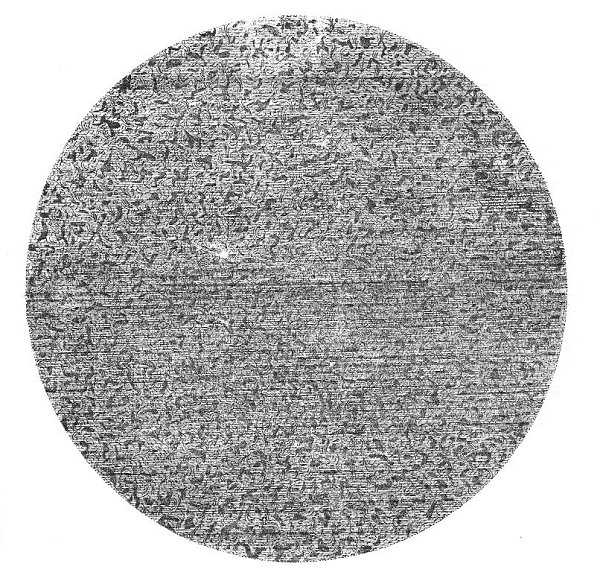 Fig 1
Fig 1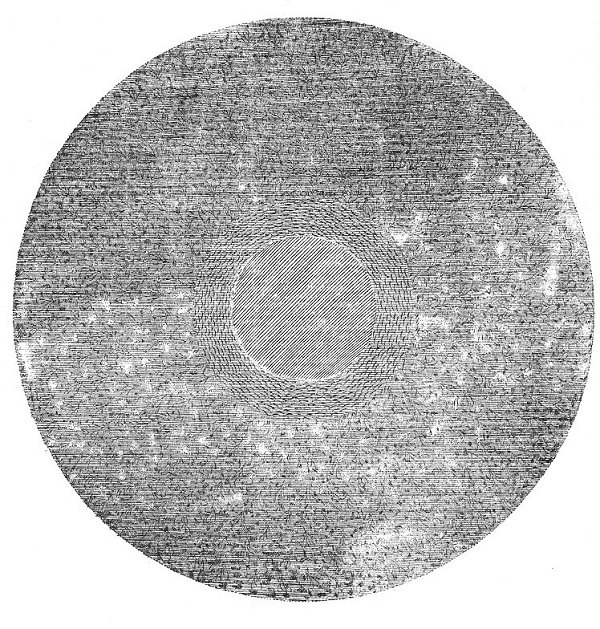 Fig. 2
Fig. 2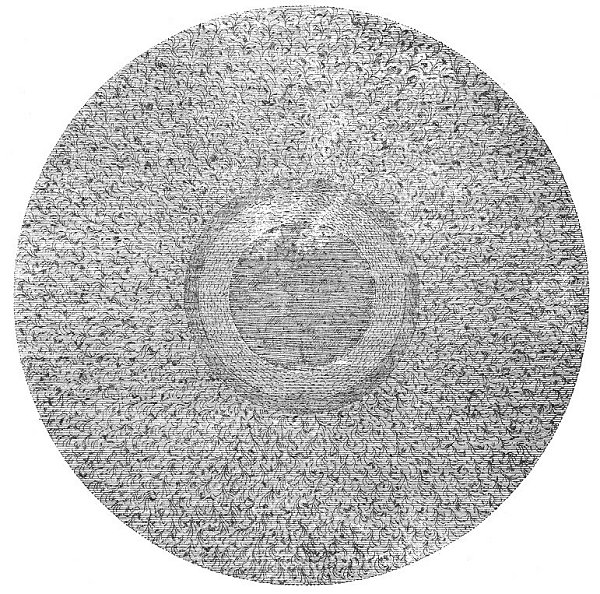 Fig. 3
Fig. 3